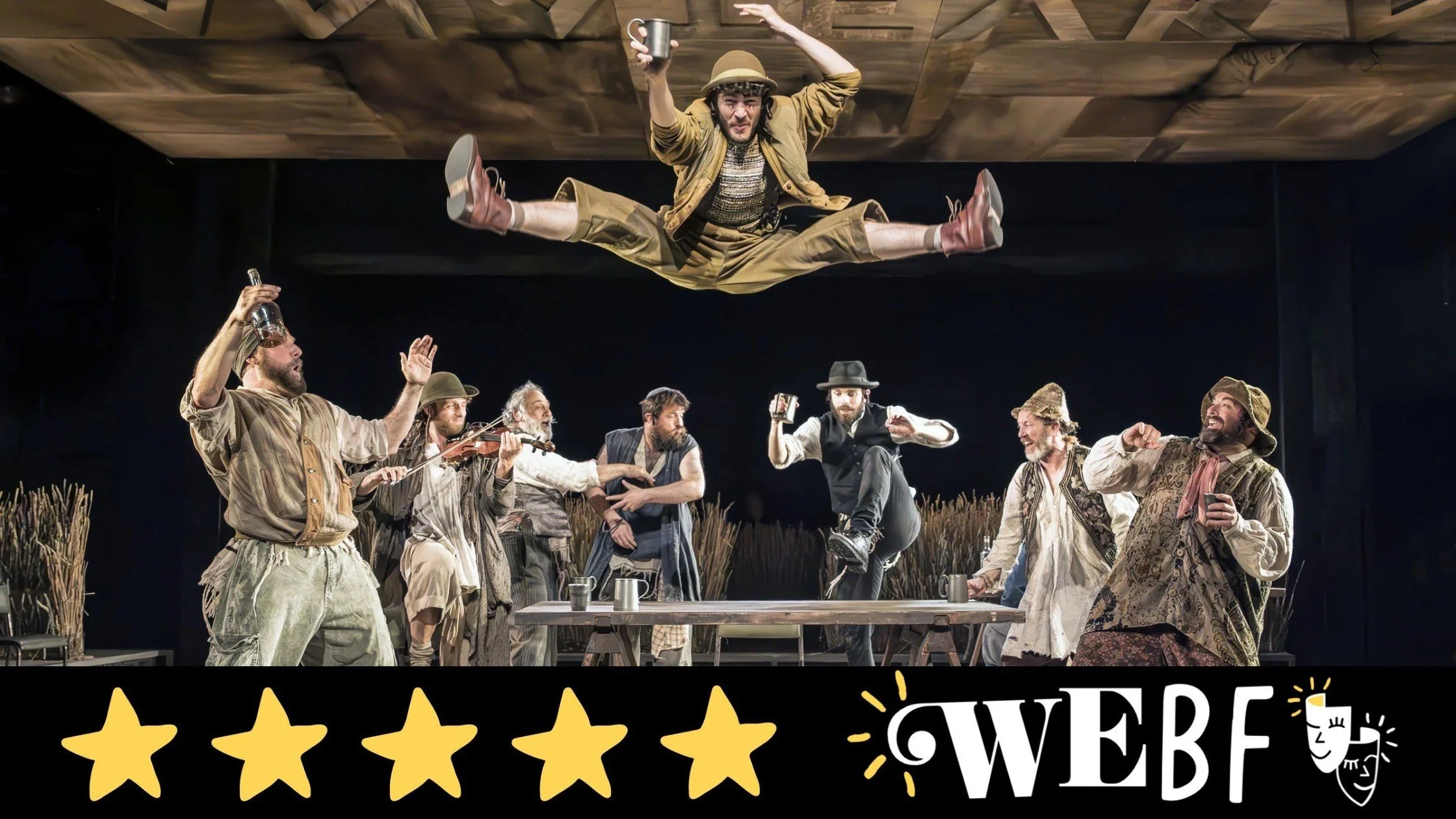Review: FIDDLER ON THE ROOF, Barbican Theatre
Photo credit: Marc Brenner
With a stellar creative team at the helm, including Cabaret’s designer Tom Scutt and choreographer Julia Cheng, it’s unsurprising that Jordan Fein’s Fiddler on the Roof is nothing short of spectacular. A play steeped in tradition and featuring songs which have not only stood the test of time, but whose cultural relevance still echoes through our modern society, such as the often-sampled ‘If I Were A Rich Man’; Fein effortlessly sparks a new lease of life into a well-worn classic.
The show opens with a wheat field and an eerily dark stage, and as the midsection of the field begins to rise, settling mid-air to mimic a thatched roof, the Fiddler (Raphael Papo) begins to play. Set in the small village of Anatevka, the performance space is snug, flanked by more sections of wheat, as though a protective buffer shielding the tight-knit community from the outside world. The roof remains ominous throughout the play, hovering over the world within it and keeping it contained. The set and costume design pay homage to the 1905 time period. Still, there are subtle flecks of modernity which give a nod to contemporary living and the timelessness of the play’s key themes: traditions and generational conflict.
For those unfamiliar with the premise, Fiddler on the Roof follows Jewish milkman Tevye (Adam Dannheisser), who longingly talks to God in the hope he will be blessed with wealth, good fortune and, of course, suitable husbands for his five daughters. Men and women do not choose each other; Yente, the village matchmaker (Beverly Klein), is the one who makes the decisions. After all, as the opening musical number states, ‘It’s Tradition’. Unbeknownst to Tevye, what has always been an expected norm within his community becomes an invitation to question his pride and the traditional beliefs he so desperately tries to uphold. His journey is that of a man learning how far he can bend before reaching his breaking point.
Dannheisser, who is captivating throughout, delivers his lines with the perfect combination of warmth and sharp humour, particularly when grappling with his defiant daughters. A particular crowd favourite is the awkwardly timid Motel (Dan Wolff), an impoverished tailor who, much to Tevye’s dismay, falls in love and marries his daughter Tzeitel.
We get so easily caught up in the lighthearted mayhem that when violence comes to Anatevka in the form of a ‘demonstration’, this uncomfortable reality is felt both on stage and throughout the audience. Despite so many scenes of joyous celebration, the story is set against a backdrop of increasing oppression and persecution. The play reflects not only on Tevye’s emotional disarray surrounding his family values, but also the upheaval of his people in the wake of antisemitism.
They are ultimately forced to leave their homes and disperse as refugees. Their story of displacement is poignant and continues to resonate, just as it has done for decades before.
***** Five stars
Reviewed by: Chess Hayden


